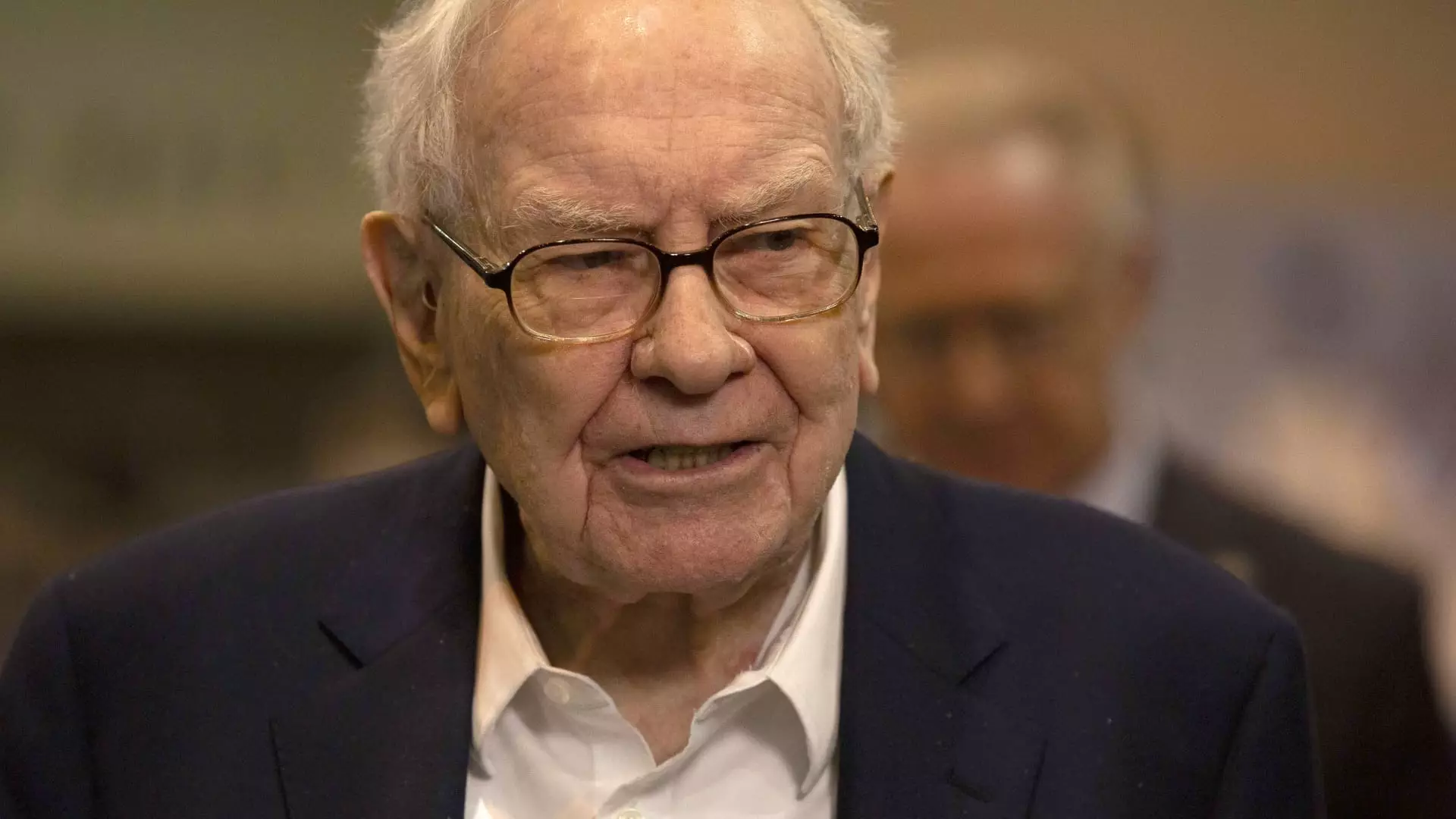In the third quarter of 2023, Berkshire Hathaway, the renowned investment conglomerate led by the legendary Warren Buffett, accumulated a staggering cash reserve that exceeded $300 billion. As of September 30, the company’s cash holdings reached an unprecedented $325.2 billion, marking an increase from $276.9 billion just a quarter earlier. This financial milestone not only highlights Berkshire’s robust liquidity but also serves as an indicator of Buffett’s cautious approach to the current investment climate. Instead of reinvesting this significant cash pile back into the market, Buffett has chosen a different path, one that involves a systematic reduction of his equity holdings.
Analyzing Buffett’s recent stock-sell actions reveals a methodical strategy rather than a reactionary response to market volatility. By selling substantial portions of major investments, notably in technology giant Apple and banking titan Bank of America, Buffett has signaled a shift towards a more conservative portfolio management style. During the third quarter alone, Berkshire reduced its stake in Apple by approximately 25%, continuing a trend that has persisted for four consecutive quarters. Concurrently, the company generated over $10 billion from its ongoing divestiture of Bank of America shares, underscoring Buffett’s intent to cleanse the portfolio and possibly secure cash for future opportunities.
Interestingly, amidst this strategic sell-off, no company stock repurchases occurred in the same time frame. This stark absence of buyback activity contrasts sharply with historical practices at Berkshire Hathaway, where repurchases typically take place when shares are believed to be undervalued. Earlier in the year, buyback activities had already diminished, with a relatively small $345 million repurchased in the second quarter, a sharp decrease compared to the $2 billion repurchased in the two prior quarters. Buffett’s reticence to engage in buybacks during this quarter may imply his assessment of market valuation or possibly a focus on strengthening the balance sheet rather than inflating share price through repurchases.
Berkshire Hathaway’s overall market performance has been noteworthy, with its Class A shares gaining 25% year-to-date, surpassing the S&P 500’s 20.1% growth during the same period. The conglomerate even achieved a significant milestone by crossing a $1 trillion market capitalization in the third quarter. Despite these impressive figures, the company’s operating profits revealed a slight downturn, registering $10.1 billion—a 6% decline from the previous year. This decrease can largely be attributed to the weak performance in insurance underwriting, indicating potential vulnerabilities in specific sectors within the conglomerate.
Buffett’s cautious sentiment aligns with a broader analysis of the prevailing economic conditions. The stock market has surged this year amid optimism about a ‘soft landing’ for the economy, bolstered by decreasing inflation and anticipated interest rate cuts from the Federal Reserve. However, with the 10-year Treasury yield recently climbing back above 4%, the landscape appears less favorable. Influential investors, including Paul Tudor Jones, express concern over the rising fiscal deficit and a lack of commitment from political leaders to confront the spending issues head-on. The implication of this backdrop suggests that investors may need to brace for potential volatility.
Moreover, Buffett’s strategy may be influenced by the looming prospect of increased capital gains tax rates as a measure to address the growing deficit. Buffett has hinted at this possibility throughout the year, elucidating his logic behind liquidating certain stock holdings. The anticipation of higher tax liabilities could very well inform his decision-making process, as proactive portfolio adjustments ensure that he is well-positioned amidst possible changes in fiscal policy.
Warren Buffett’s actions in the third quarter exemplify a disciplined and strategic approach to investment management. With an unprecedented cash reserve coupled with a significant reduction in stock holdings, Buffett illustrates both confidence and caution in navigating the current economic landscape. As he continues to evaluate the market with a discerning eye, the legacy of Berkshire Hathaway remains a testament to the evolving dynamics of investment strategy in uncertain times.
In an era marked by rapid changes and economic fluctuations, Buffett’s decisions offer valuable lessons on the importance of liquidity, adaptability, and foresight, ultimately reinforcing his status as one of the preeminent figures in financial history.

